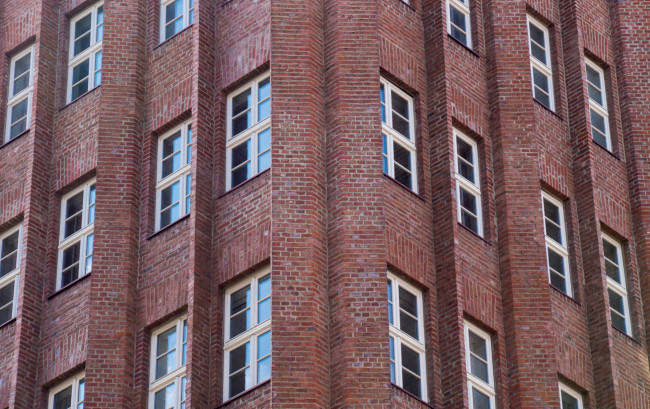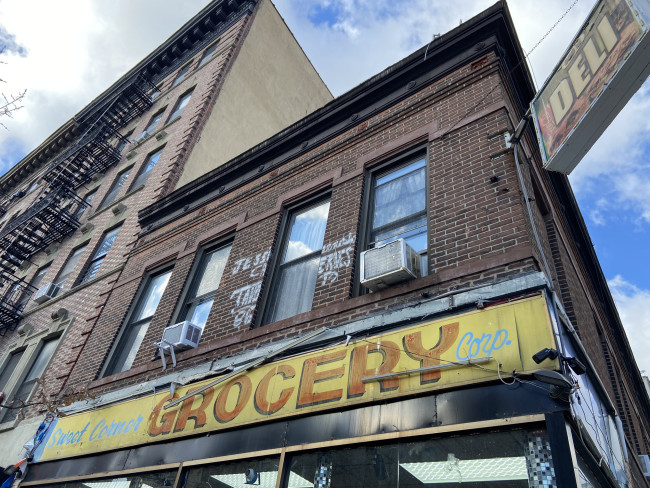City Council debates bills requiring AC in apartments, allowing more short-term rentals, and expanding anti-harassment protections
- The City Council is considering letting small property owners rent their units for less than 30 days
- A proposal from Council Member Lincoln Restler would require landlords to provide AC units
- Other bills would let the NYPD stop illegal lockouts and broaden the definition of tenant harassment

City Council Member Sandy Nurse speaks at the Nov. 12th hearing.
Photo courtesy: Gerardo Romo/NYC Council Media Unit.
The New York City Council is looking to crack down on a number of issues facing renters through two major bills.
Not only did the City Council pass a bill shifting broker fees to landlords last week, but it also debated requiring landlords to provide AC to residents during the summer and expanding tenant protections against illegal evictions.
“Our city faces a dire housing crisis,” said Pierina Sanchez, the chair of the City Council’s Committee on Housing and Buildings at a committee hearing on Nov. 12th. “We’ve seen over 13,000 registered evictions [in 2023], up from 5,000 in 2022 and 268 in 2021. In 2024, we have already passed that year’s mark with over 14,000 evictions.”
A separate bill the City Council is now considering would allow small property owners to rent units for fewer than 30 days on platforms such as Airbnb. Read on for a breakdown of each proposal.
Allowing short-term rentals for fewer than 30 days
The short-term rental bill, introduced by Council Member Farah Louis, would allow owners of one- and two-family houses to rent out part or all of their properties for fewer than 30 days, without needing to be in the unit.
Currently, New Yorkers are prohibited from renting out an entire apartment or house for less than 30 days, even if the host stays in the building. That rule was difficult to enforce until the City Council passed Local Law 18, which required owners to register with the Mayor’s Office of Special Enforcement (OSE) to confirm their operation was above board.
Louis’s bill would carve out an exemption for small property owners, and has already gained the support of Council Speaker Adrienne Adams, Gothamist reported. But it faces opposition from housing advocates who worry owners will turn apartments into short-term lodgings.

Requiring air conditioning in NYC apartments
Under a bill proposed by City Council Member Lincoln Restler, landlords would be required to keep apartments at 78 degrees or lower when outdoor temperatures exceed 82 degrees in the summer months, from June 15th to Sept. 15th.
“To ensure our neighbors stay alive in the summer, we have to provide cooling,” Restler said.
Restler said he modeled the cooling bill after city requirements to provide heat in the winter months known as “heat season,” which runs from Oct. 1st through the end of May, despite recent, toasty November days. But those testifying at the meeting raised questions about how the bill would be implemented.
While the bill requires landlords to install air conditioning units, tenants would still have to pay for the electricity that powers them. And that additional electricity usage could strain the city and state’s climate goals.
“We both want to balance the necessity of doing this and doing it quickly and doing it well,” said Lucy Joffe, a deputy commissioner for the Department of Housing Preservation & Development.
Plus, the HPD would need to hire additional staffers to be able to inspect new AC units, said Deputy Commissioner Ann Marie Santiago.
Cracking down on illegal lockouts and evictions
Still, the HPD was “supportive of the intent” of Restler’s cooling bill as well as a slate of bills proposed by Council Member Sandy Nurse aimed at cracking down on unlawful evictions, Santiago said during the Nov. 12th hearing.
Nurse’s bills would make an unlawful eviction—when a landlord removes a tenant without going through a legal process—a part of the definition of tenant harassment. Plus, one of her bills would allow the NYPD to intervene when a landlord locks out a tenant in order to illegally evict them.
The legislation would also raise civil penalties for unlawful eviction, require that landlords post building signs to notify tenants if the property has any rent-stabilized units, and bar landlords who unlawfully evict tenants from taking advantage of some of the city’s tax incentive programs.
“We want to make it extremely costly to break the law and illegally lock out tenants,” Nurse said at the hearing.
But Santiago and other officials at the hearing warned that a “blanket five-year ban” on an owner using public subsidies would take away one of the HPD’s tools for renovating old buildings. She also said that the NYPD was “not the right agent” to intervene in illegal lockouts. Having the NYPD establish a procedure for intervening with illegal lockouts would be overly burdensome, she added.
Nurse, however, said no other agency could handle responding to illegal lockout complaints 24/7, The City reported.































